Poland sought to ease passage into the European Union for around quarter of a million Ukrainians waiting at European border crossings in freezing conditions after fleeing the Russian invasion of their country.
With men of conscription age prevented from leaving Ukraine, groups of mainly women and children arrived at borders in eastern Poland, Slovakia and Hungary and in northern and northeastern Romania.
Wait times to cross borders ranged from a few hours at small crossings to several days at busier ones such as Medyka in Poland, where lines on the Ukraine side stretched back dozens of kilometres.
"The queues are huge," said Polish prime minister's chief of staff Michal Dworczyk, who added border police were allowing in people without documents and that the government was talking with Ukrainian counterparts about simplifying procedures.
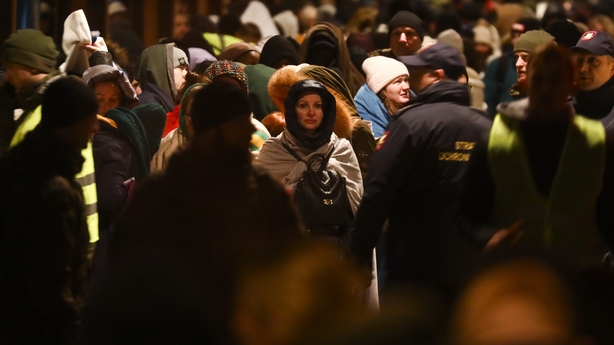
"If we count the functioning border points there are certainly over a quarter of a million people at the borders," he said.
Another Polish official said Ukrainian border guards were slowing the flow of people as they sought to separate the men of fighting age.
"The system often freezes," Deputy Interior Minister Pawel Szefernaker was reported as saying.
The US Embassy in Kyiv tweeted that Ukrainian border guards were waiving exit screening procedures for women and children to reduce wait times as snow began falling.
Romanian Interior Minister Lucian Bode said that with people queuing 20 to 30 hours on the Ukrainian side to get into Romania, it was crucial to agree on how to process their paperwork to shorten waiting times on the EU side as well.
The head of a UN agency said that more than 500,000 people have fled Ukraine to neighbouring countries since the start of Russia's invasion last week.
EU officials have said the war could displace 7 million people.
The European Union is also preparing to grant Ukrainians who flee the war the right to stay and work in the 27-nation bloc for up to three years.
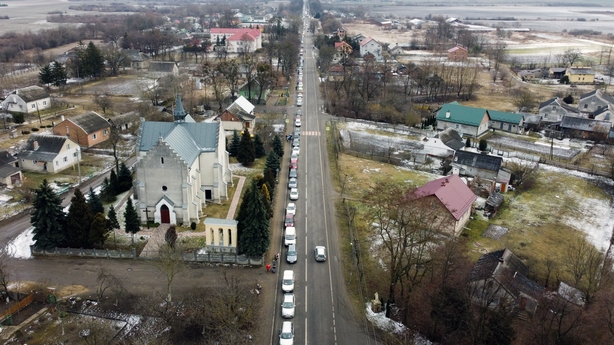
Crowds of people and cars have started to clog border towns such as Medyka, as refugees wait to be picked up.
The mayor of Przemysl, Wojciech Bakun, appealed to Polish volunteers to stop showing up with cars to offer transport for newly arrived groups, saying traffic was becoming unmanageable.
As officials searched for ways to unclog bottlenecks, Ukrainians living in the European Union anxiously waited at border crossings to greet family members.
"We were waiting here three days and they were on the road for over four days," said Veronika Sahlikova Kufelt, who travelled from Germany to meet her nieces and grandmother at the Ubla crossing in Slovakia.
Brendan Murphy, originally from County Louth, is travelling across Ukraine with his family after fleeing from Kyiv | Read more: https://t.co/pJfe0JmXSs pic.twitter.com/9O72IIQBNx
— RTÉ News (@rtenews) February 28, 2022
In Hungary, in the Tiszabecs village nestled in a bend of the river Tisza, one Ukrainian refugee - Tanya - arrived at 4am with two children aged one and eight.
As she waited for a friend to drive them to her husband in Lublin in southeastern Poland, cars with licence plates from Hungary, Italy and the Czech Republic came and went, ferrying refugees.
Her town of Kalush in western Ukraine had been relatively calm before she set off.
"Only sirens were wailing," Tanya said.
Poland, whose Ukrainian community of around 1 million is the region's largest, has welcomed many people escaping Ukraine.
Polish border authorities said almost 327,000 have entered Poland since 24 February, with around 73,300 arriving on Monday.
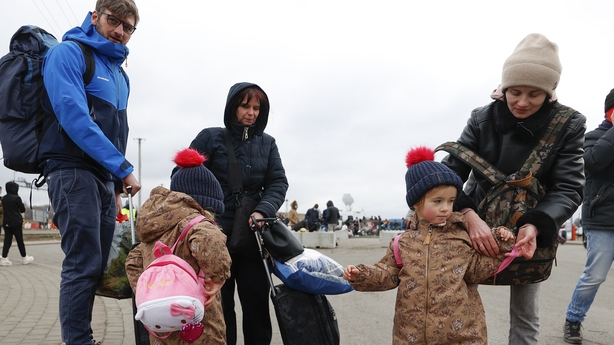
At Medyka, Poland's busiest border crossing, officials loaded new arrivals into tour buses before ferrying them to a reception centre in the nearby town of Przemysl where friends, relatives and volunteers waited.
New arrivals huddled in blankets around fires as they waited in the snowy, cold weather to leave the reception centre.
"I took a train from Kyiv to Lviv to a point where the taxi put us," one Ukrainian woman said. "I walked the last 50 kilometres."
Across central Europe, authorities set up makeshift reception centres in tents where people could get medical aid and process asylum papers, while thousands of volunteers have driven to the borders with donations of food, blankets and clothes.
In the capital Warsaw, local authorities said local residents had listed some 2,500 apartments where refugees could stay.
In Romania where volunteers were trying to provide raincoats in snowy conditions, more than 74,000 Ukrainians have arrived since 24 February, with more than half departing for destinations in other countries, officials said.
EU plans to give Ukrainians right to stay up to 3 years
The European Union is preparing to grant Ukrainians who flee the war the right to stay and work in the 27-nation bloc for up to three years, senior EU and French officials have said.
At least 300,000 Ukrainian refugees have entered the EU so far, and the bloc needs to prepare for millions more, they said. EU members Poland, Romania, Slovakia and Hungary have land borders with Ukraine.
"It is our duty to take in those who flee war," French Interior Minister Gerald Darmanin told France 2 TV, saying EU interior ministers had yesterday tasked the European Commission with preparing draft proposals to grant them protection.
Ministers will meet again on Thursday to agree on the details.
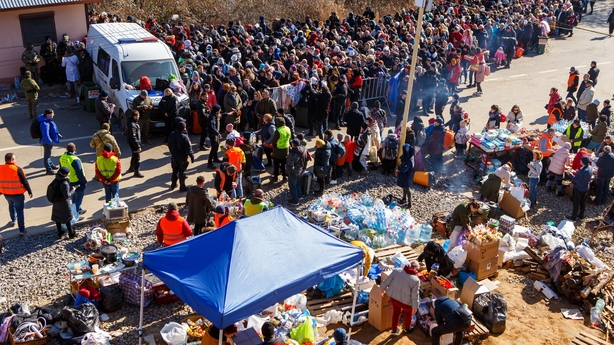
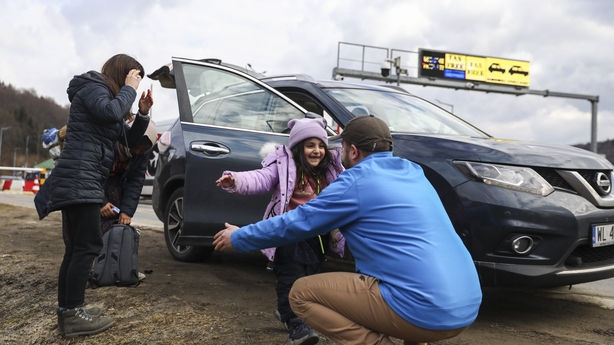
The EU temporary protection directive - drawn up after the 1990s war in the Balkans, but never used so far - provides for the same level of protection, for one to three years, in all EU states, including a residence permit, access to employment, social welfare and medical treatment.
EU Home Affairs Commissioner Ylva Johansson said most ministers had brought their support to the move on Sunday, with just some questioning if now was the time to do it or if it was best to wait a bit.
The issue, she said, concerns all of the EU.
"We already see a lot of Ukrainians leaving the countries of first entry and go to other member states, especially those that have a big Ukrainian population already," she told a news conference.
"Poland is one of them but also Italy, Portugal, Spain, Germany, the Czech Republic."
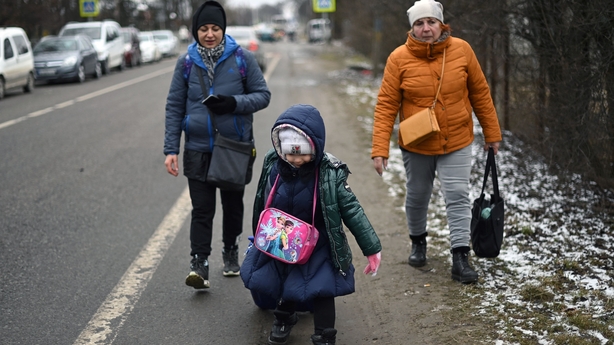
between Ukraine and Poland
"All EU member states are prepared to accept refugees from Ukraine," German Interior Minister Nancy Faeser said.
"This is a strong response by Europe to the terrible suffering that Putin inflicts with his criminal war of aggression: Together, we stand in solidarity with the people of Ukraine."
Citing UN estimates, Janez Lenarcic, European Commissioner for Humanitarian Aid and Crisis Management, said four million Ukrainians are expected to flee the country as refugees.
With men of conscription age prevented from leaving Ukraine, mostly women and children are arriving at the border in eastern Poland, Slovakia and Hungary and in northern and northeastern Romania.

